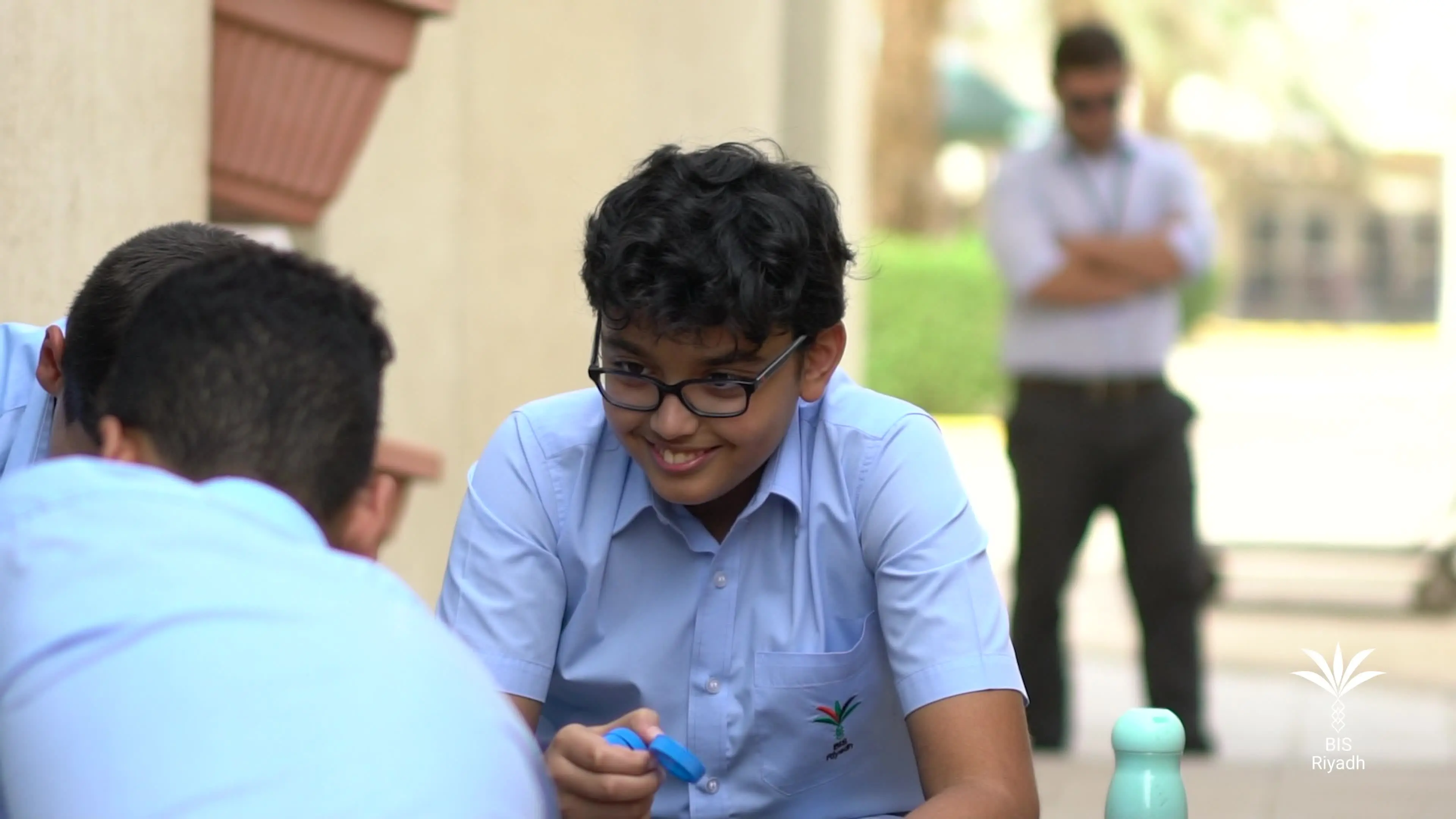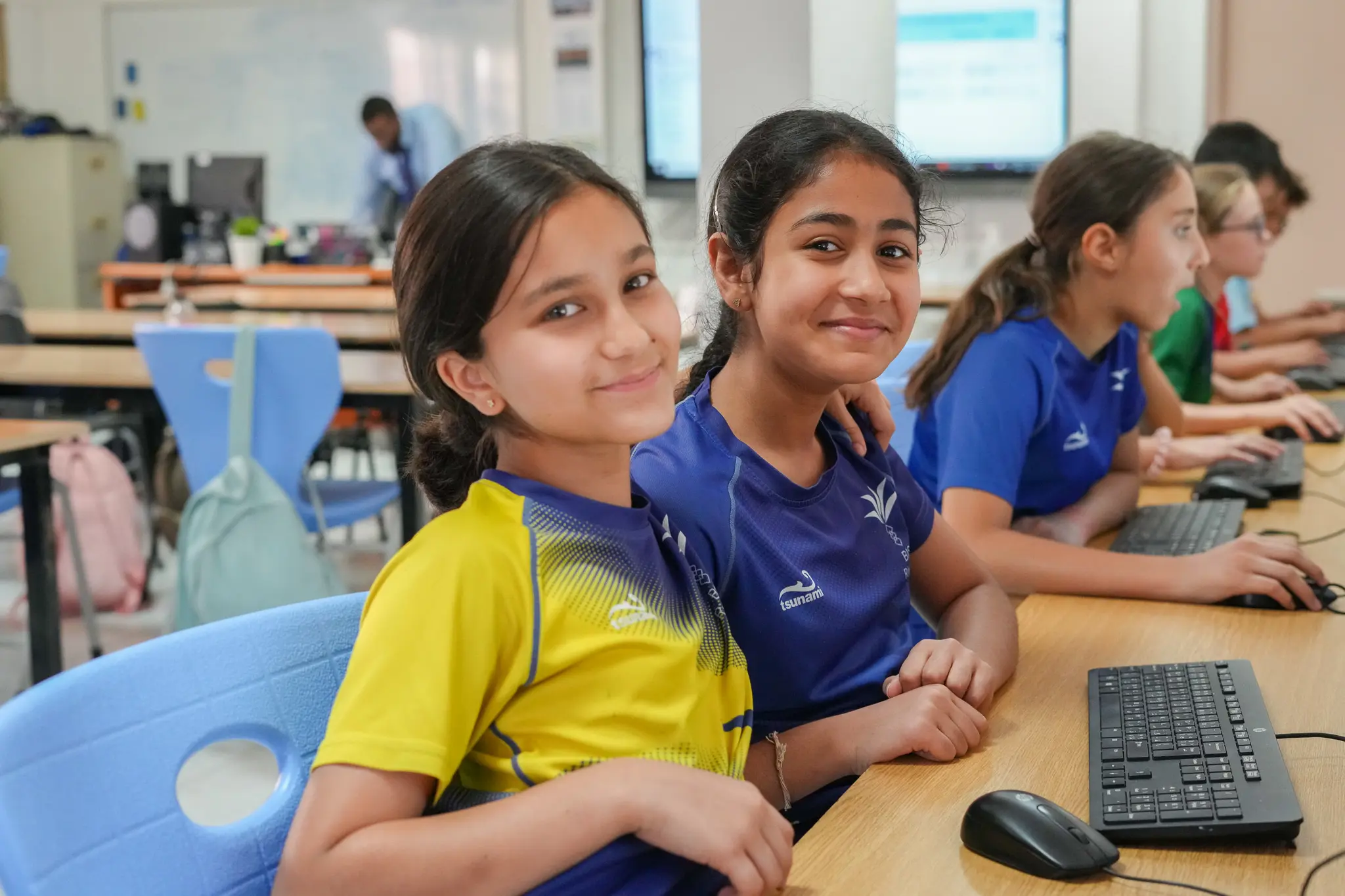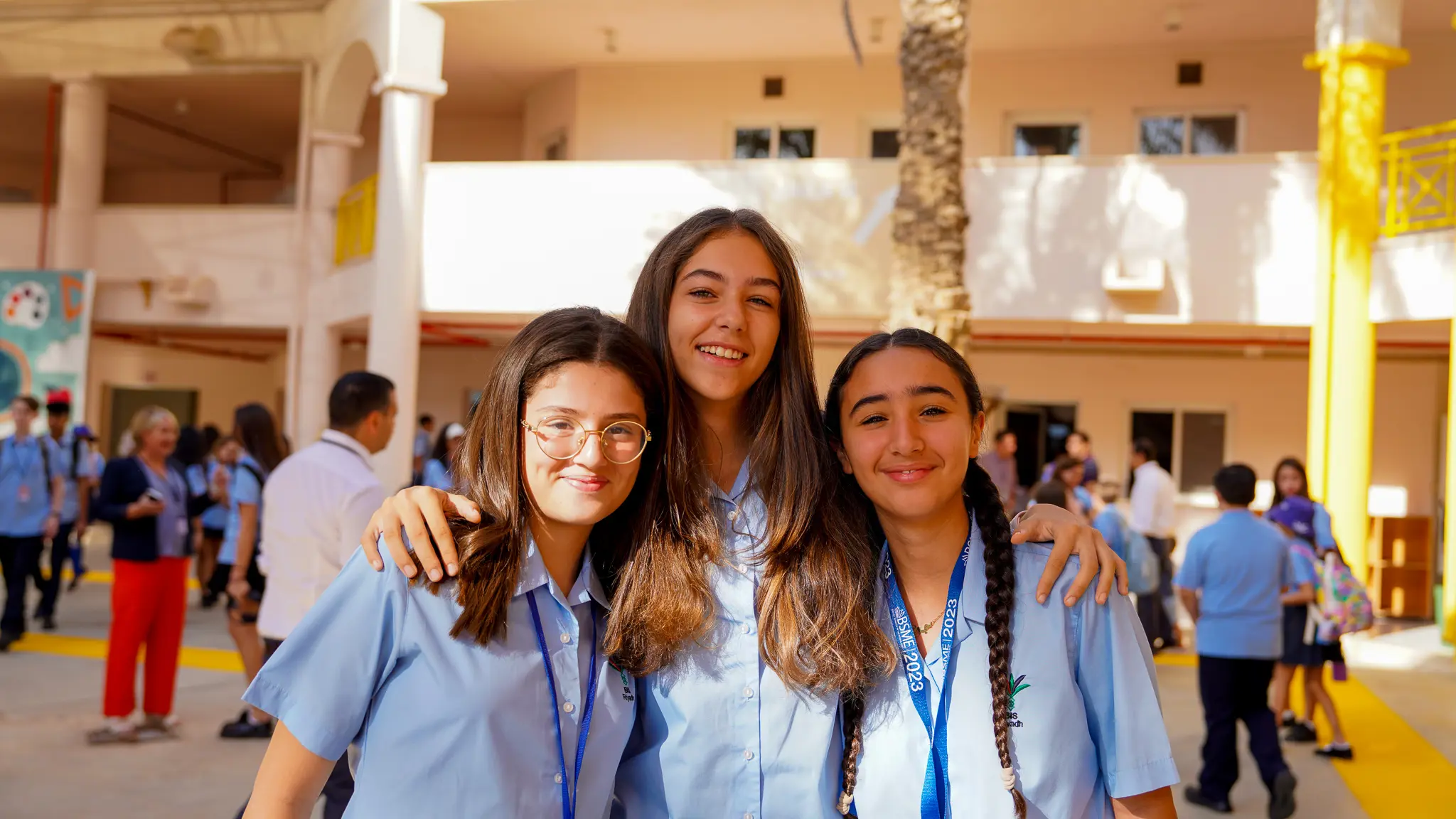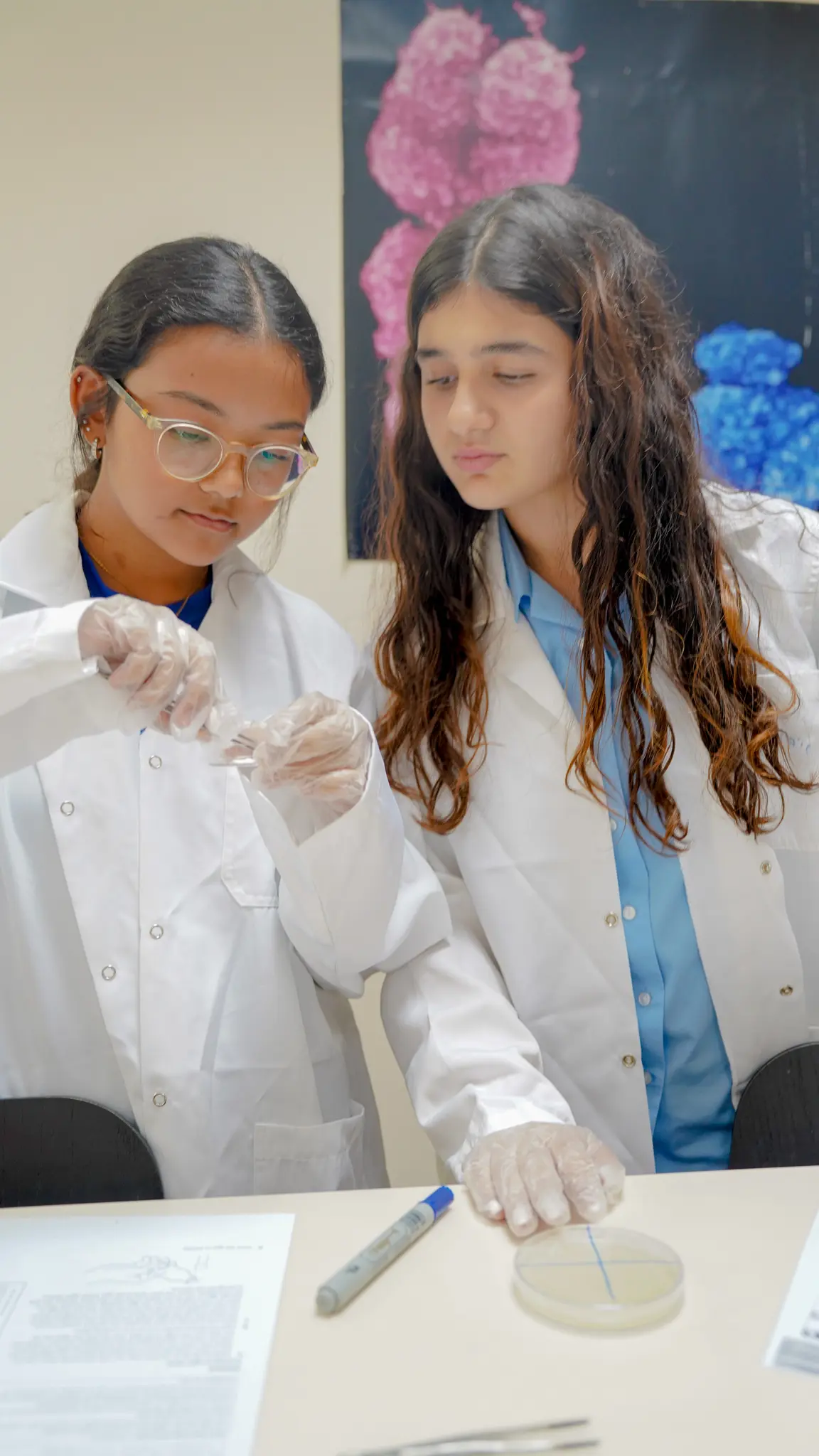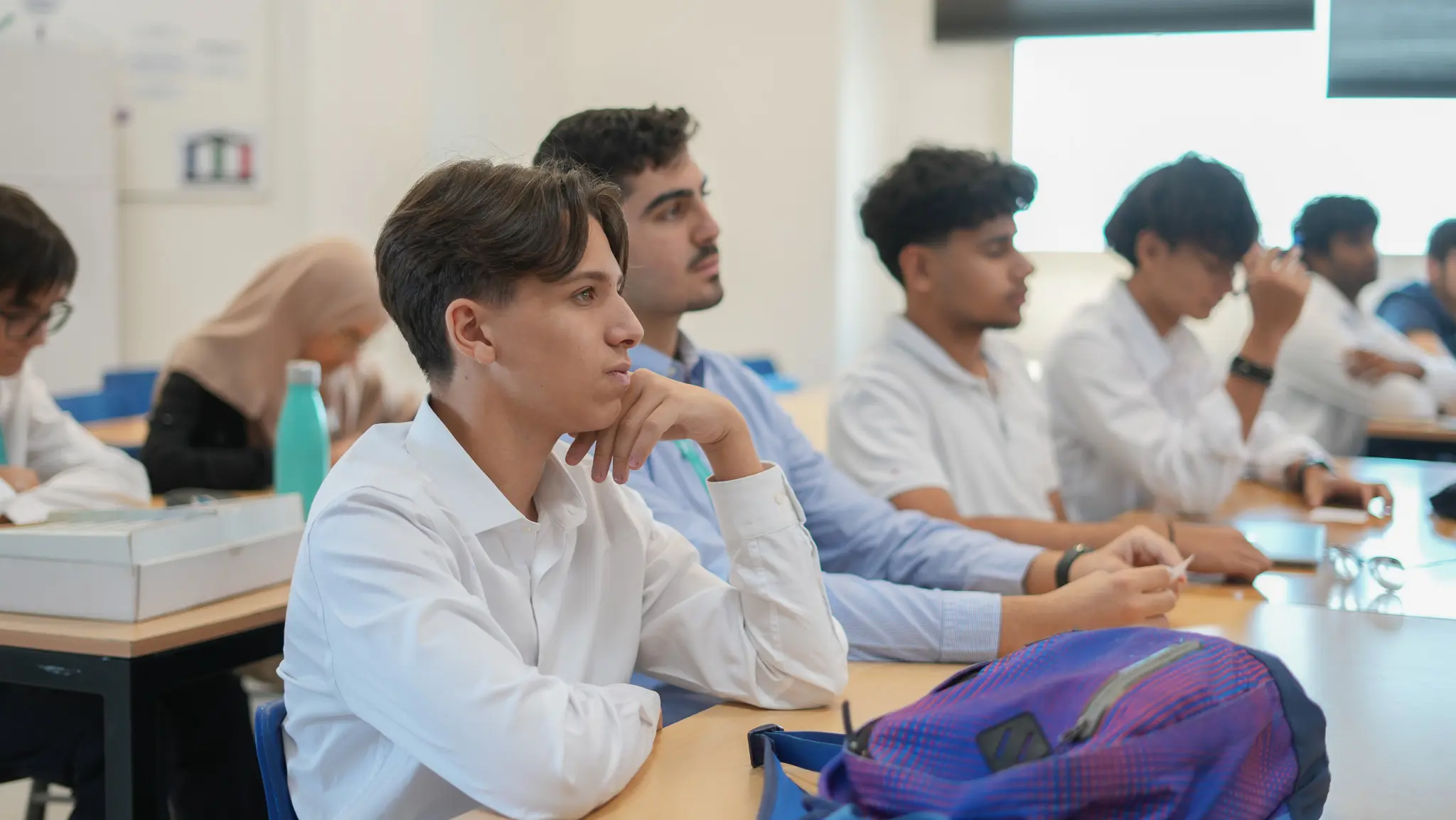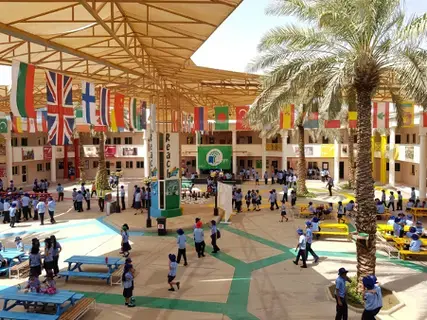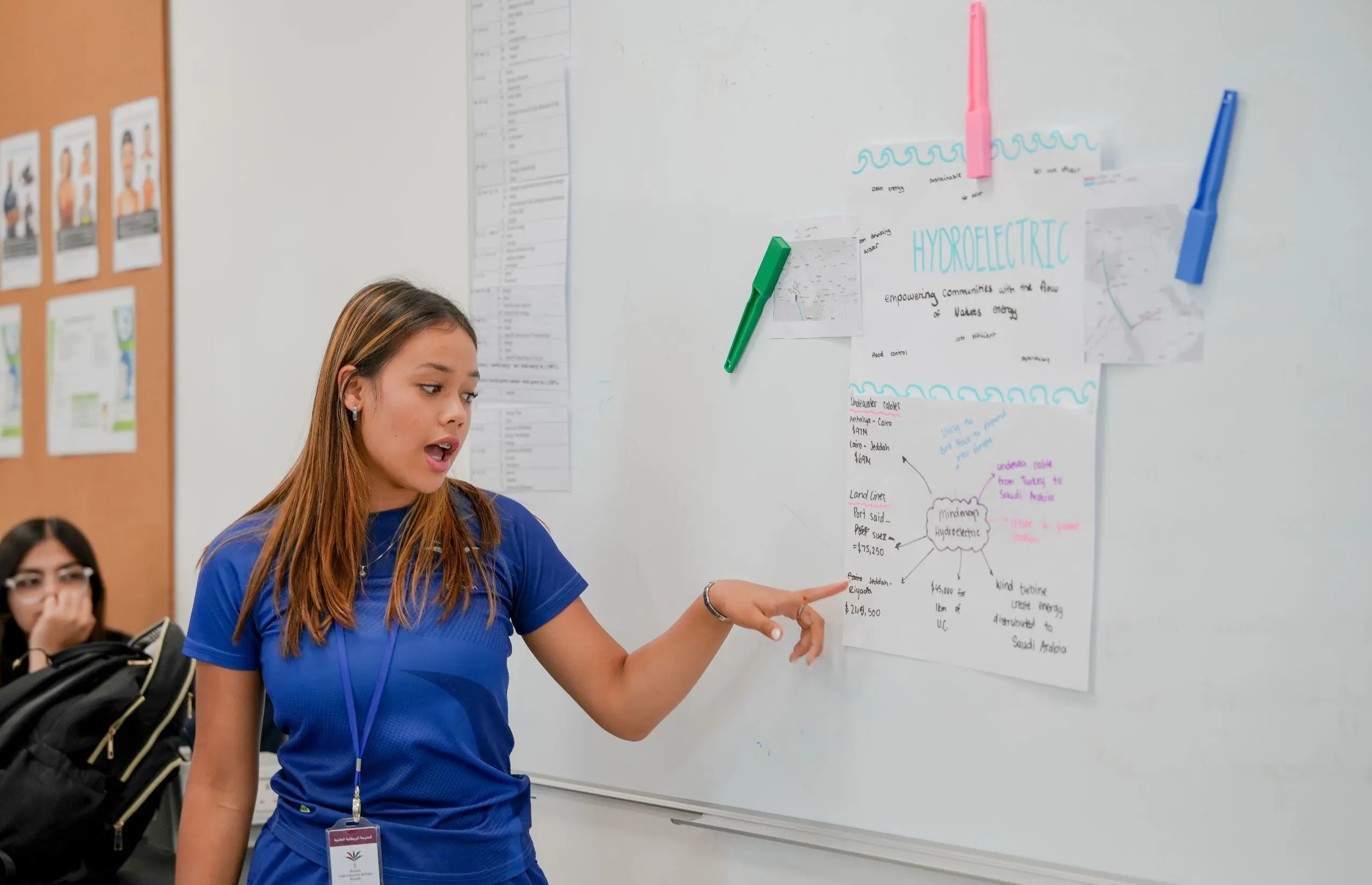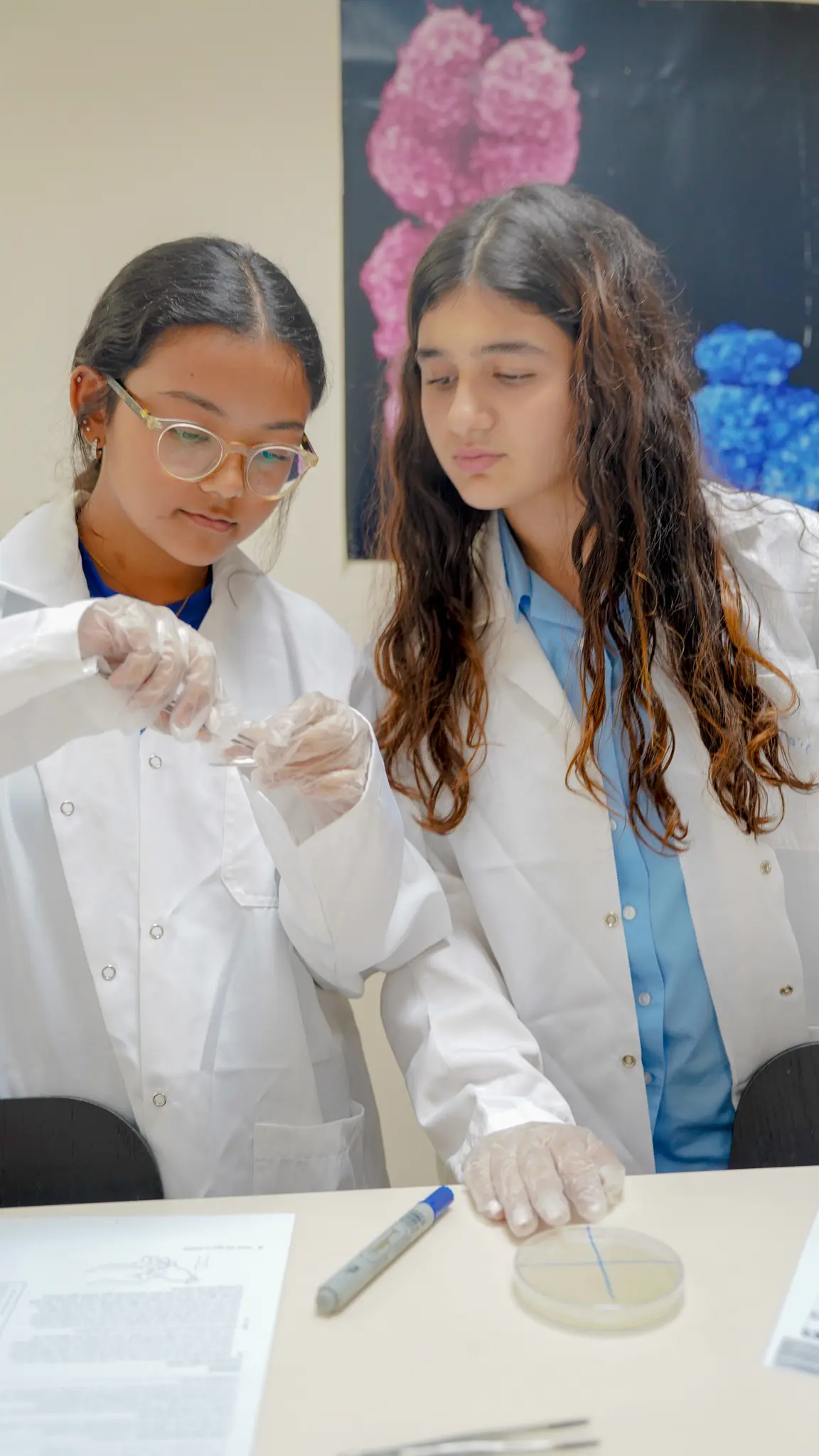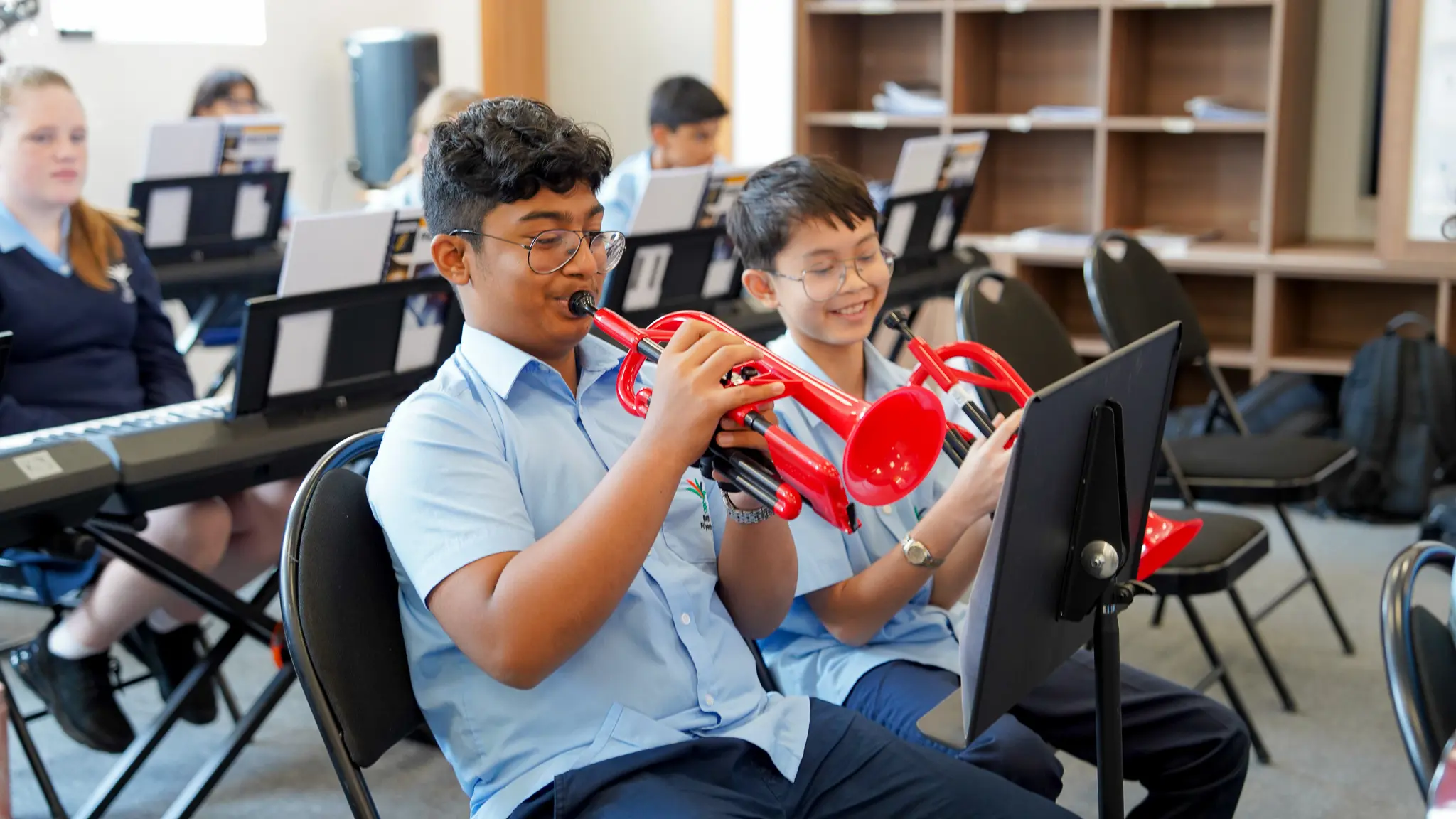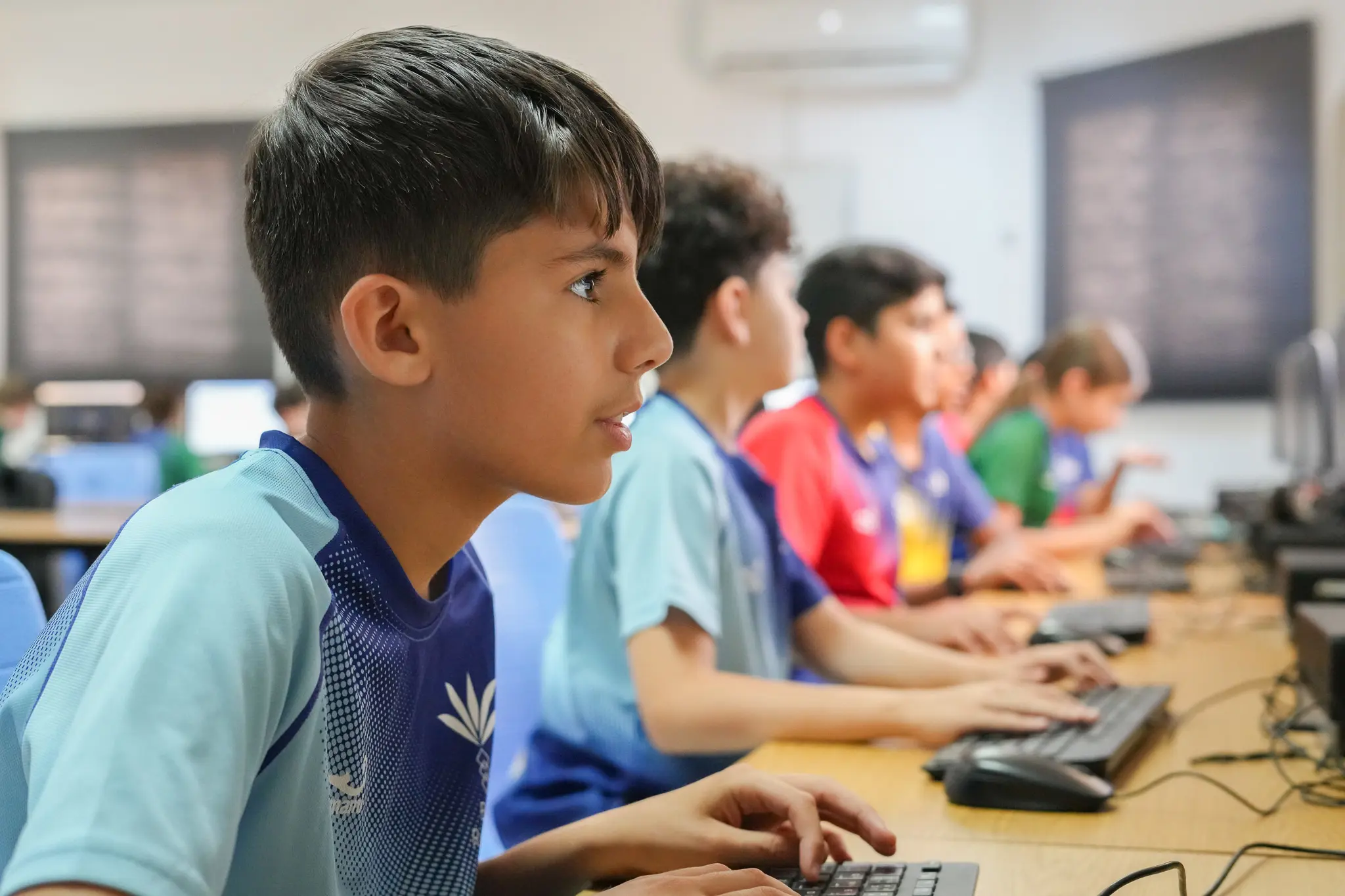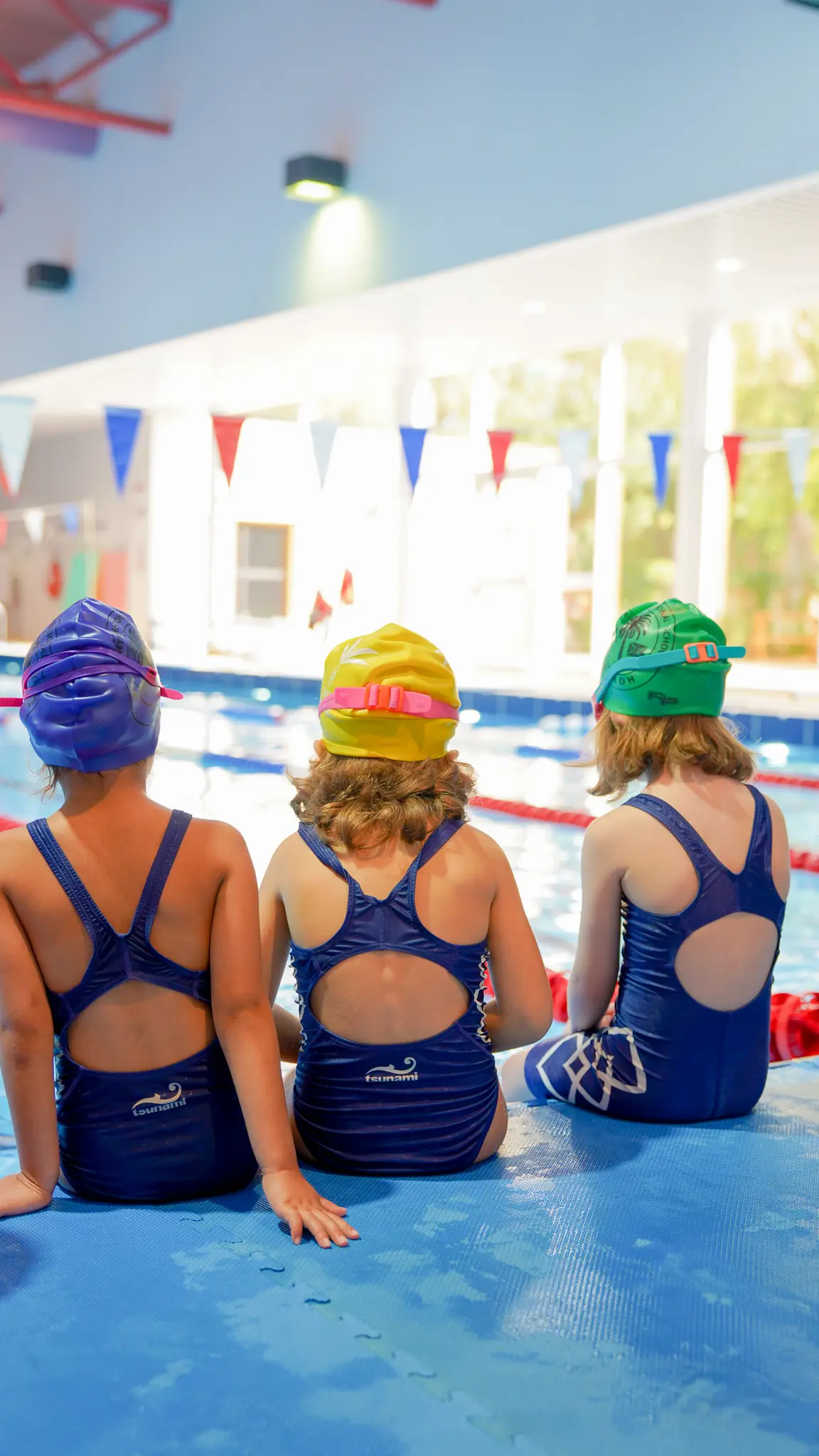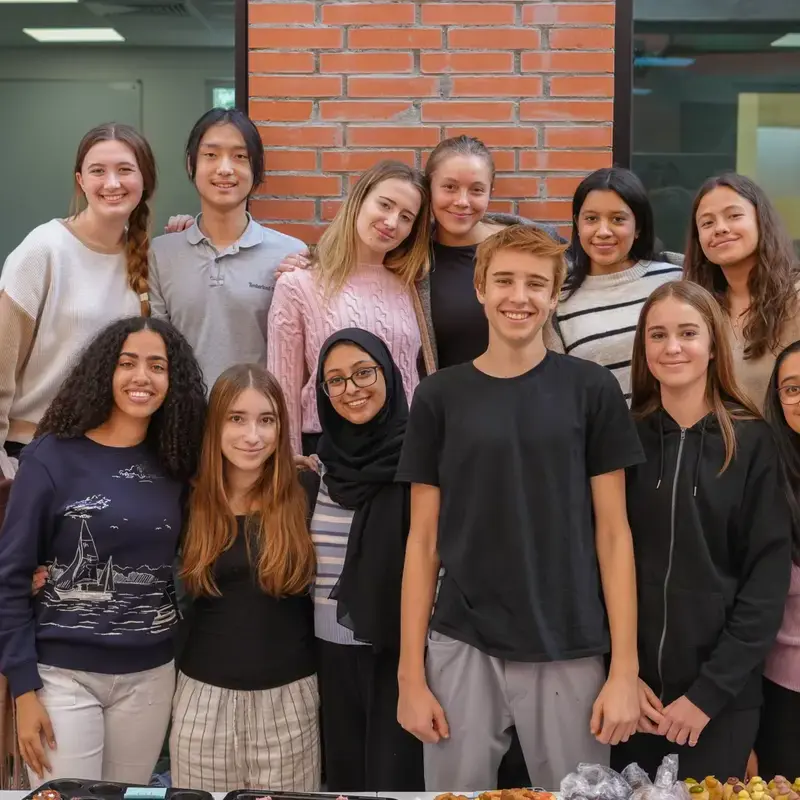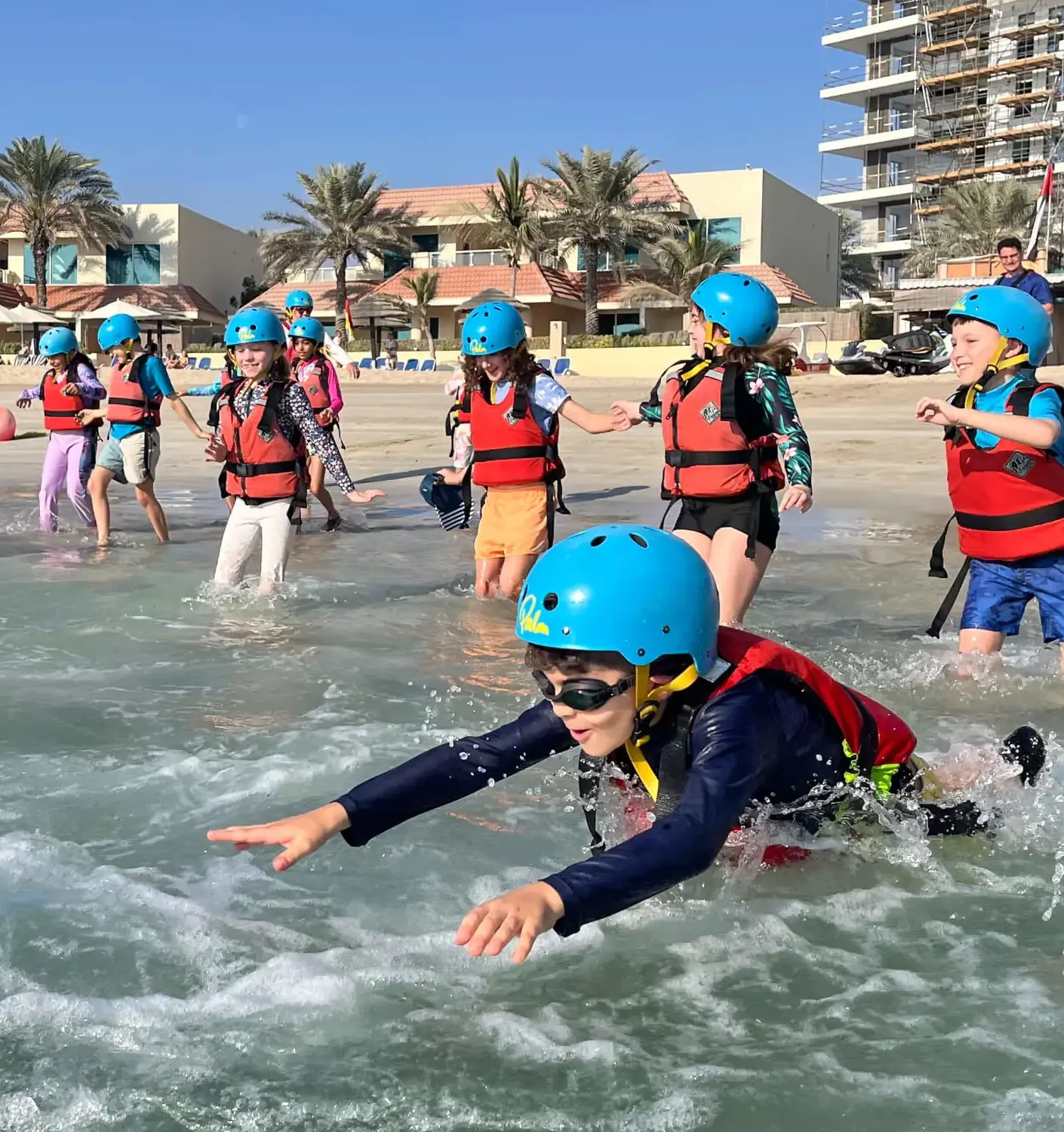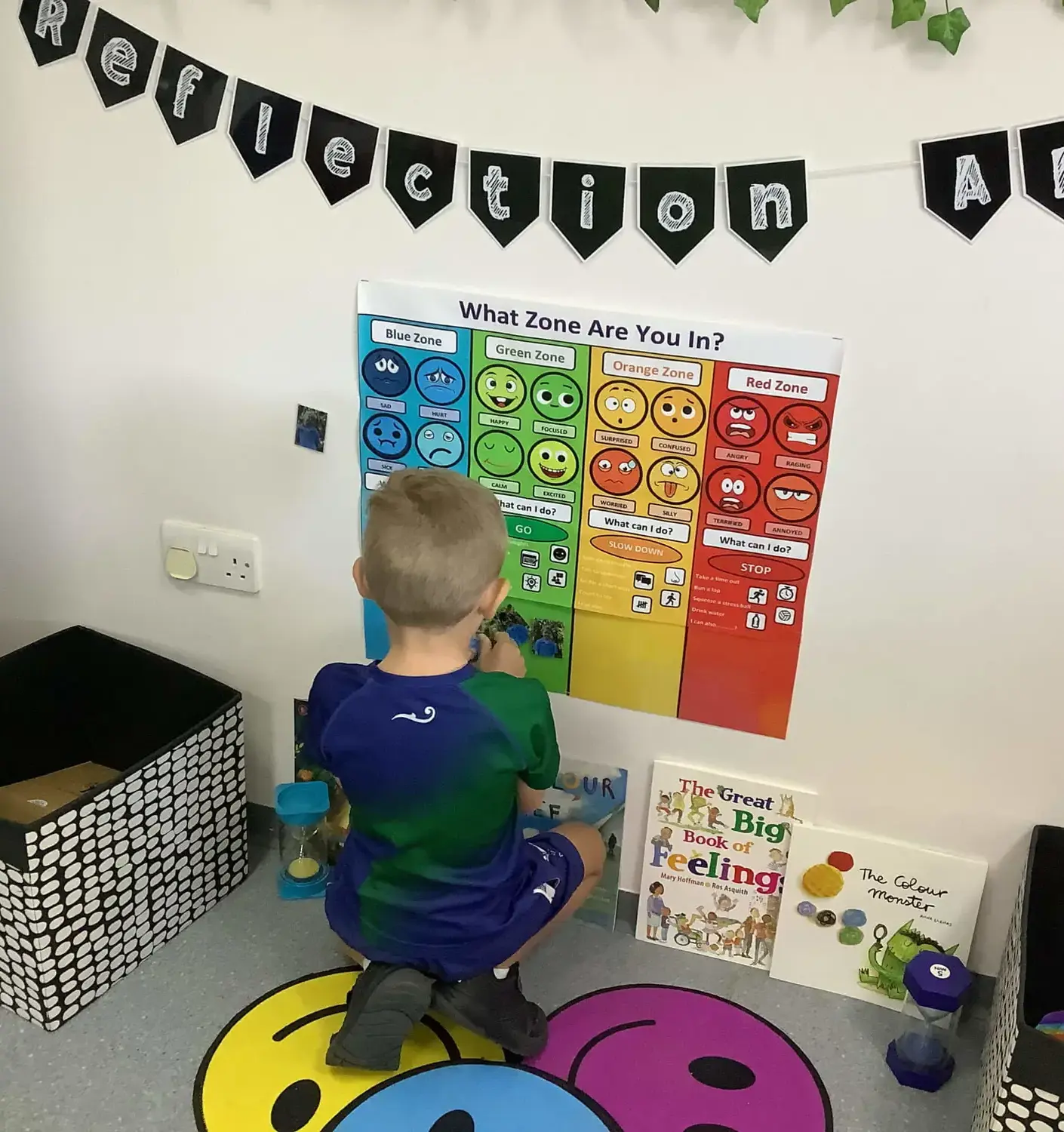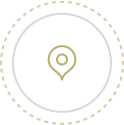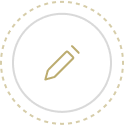Academics
An overview of the Academic Curriculum at DQ
KEY STAGE SYSTEM OVERVIEW
| CHILD’S AGE | YEAR | KEY STAGE |
|---|---|---|
| 3-4 | N/A | Early Years |
| 4-5 | Reception | Early Years |
| 5-6 | Year 1 | KS1 |
| 6-7 | Year 2 | KS1 |
| 7-8 | Year 3 | KS2 |
| 8-9 | Year 4 | KS2 |
| 9-10 | Year 5 | KS2 |
| 10-11 | Year 6 | KS2 |
| 11-12 | Year 7 | KS3 |
| 12-13 | Year 8 | KS3 |
| 13-14 | Year 9 | KS3 |
| 14-15 | Year 10 | KS4 |
| 15-16 | Year 11 | KS4 |
| 16-17 | Year 12 | Lower Sixth Form |
| 17-18 | Year 13 | Upper Sixth Form |
Foundation Stages 1 and 2
Our youngest students follow the English Early Years Foundation Stage programme. Staff provide rich learning experiences and warm caring relationships to ensure every child’s unique characteristics and interests are recognised and built upon to develop resilient, resourceful, capable and confident learners.
The Foundation Stage is an exciting time for our children, their families and our staff, as the children lay down the foundations for their future success.
PRIMARY
Year 1 to Year 6
Years 1 - 6 follow the English National curriculum, which is adapted and greatly enriched to reflect our local and International context:
Key Stage 1
Within Key Stage 1 (Year 1 and 2), children build on the learning from the Foundation Stage, with a rich variety of personalised learning experiences in their classrooms, the outdoor classroom and shared spaces. The children are encouraged to continue exploring, developing curiosity and working independently and in pairs, small groups and whole class settings. Physical development, social and emotional development remain key focuses, alongside learning in literacy, mathematics, science, history, geography, design technology and arts along with computing skills. The levels of self-regulation, independence and intrinsic motivation are key features of learning at this stage.
Key Stage 2
In Key Stage 2 (Years 3-6) students enjoy a rich programme of English, mathematics, and follow 4-6 units of work each year that facilitate the learning of important knowledge, skills and conceptual understanding. These units integrate STEAM (Science, Technology, Engineering, Arts and Mathematics) as well as the humanities (interculturalism, history and geography). The units are rich, engaging and relevant in developing competencies such as curiosity, critical thinking, evaluation, reflection, teamwork and collaboration. All units are underpinned by the English National Curriculum Standards.
Children in Years 5 and 6 also enjoy a carousel of World Languages (currently French and Spanish?, as well as Arabic). In Year 6 students decide which language they will pursue in Secondary School (Year 7 onwards).
SENIOR
YEAR 7 TO YEAR 13
Year 7
Students in the Secondary School (Years 7-13) move through Key Stages 3, 4 and 5. In Key Stage 3 more subject specialists are introduced to ensure the depth of subject knowledge is developed to support them in their future endeavours. With learning across a broad range of subject areas, often through an integrated unit of study, they learn key knowledge and skills in the areas of English, maths, science, humanities, visual and performing arts, computing, technology and world languages. Physical education remains a key component of the curriculum. The well-being of our students is critical to their success, both in terms of their study as well as in their day-to-day lives. As such, Well-being lessons are conducted weekly by well-trained staff who are committed to giving our students the tools they need to support themselves and those around them.
Year 10 and Year 11
Students in Key Stage 4 (Years 10 and 11) will study IGCSEs, which are the world’s most popular international qualification for 14 to 16 year olds. Not only is it truly international - it gives students more options than any other international qualification. That means more subjects to choose from, more ways to learn and more ways to succeed. The standards of the IGCSE are aligned with the GCSE qualifications taken in England.
Year 12 and Year 13
Students in Key Stage 5 (Year 12-13) at DQ will undertake the International Baccalaureate Diploma Programme (the IBDP), which is widely regarded as the premier international pre-university programme in the world.
It aims to develop both the breadth and depth of students' knowledge, as well as encouraging them to flourish physically, intellectually, emotionally and ethically.
IB learners are:
- encouraged to think critically and solve complex problems
- drive their own learning
- a core part in educational programmes that can lead them to some of the highest-ranking universities around the world
- more culturally aware through the development of a second language
- able to engage with people in an increasingly globalised, rapidly changing world.
| International Baccalaureate Subjects on offer 2025/2026 |
|---|
|
Candidates are required to choose 6 subjects, 1 subject from each group. 3 subjects need to be selected at Standard Level (SL) and 3 subjects at Higher Level (HL) Group 1
Group 2
Group 3
Group 4
Group 5
Group 6
|





